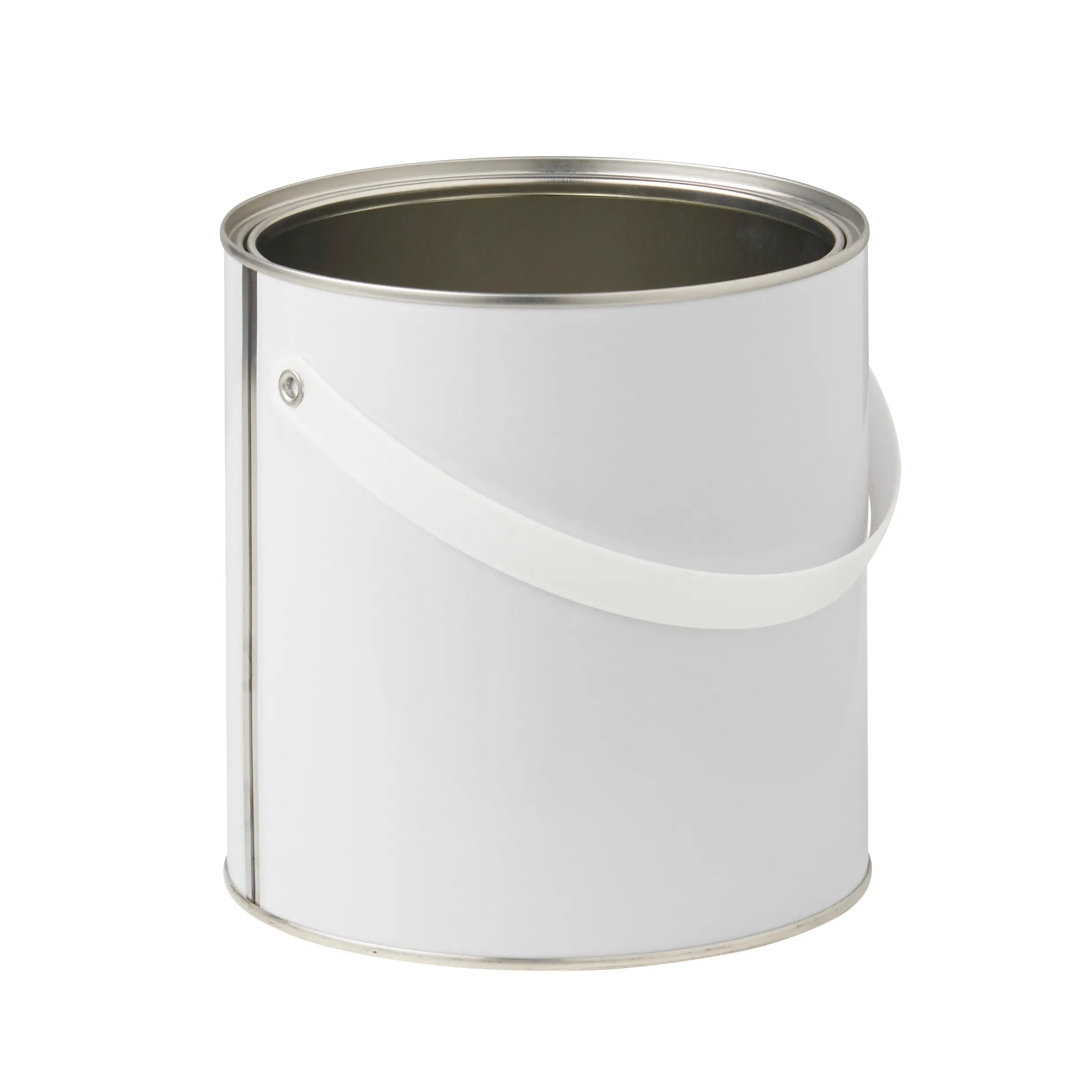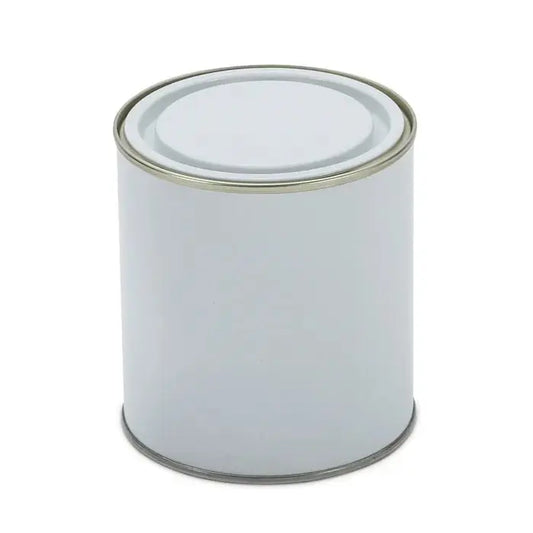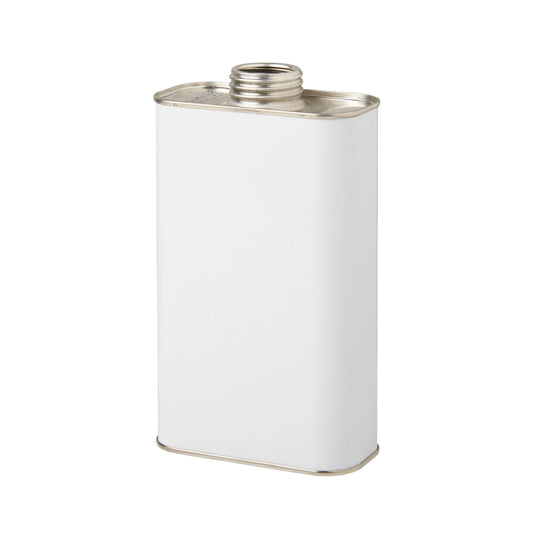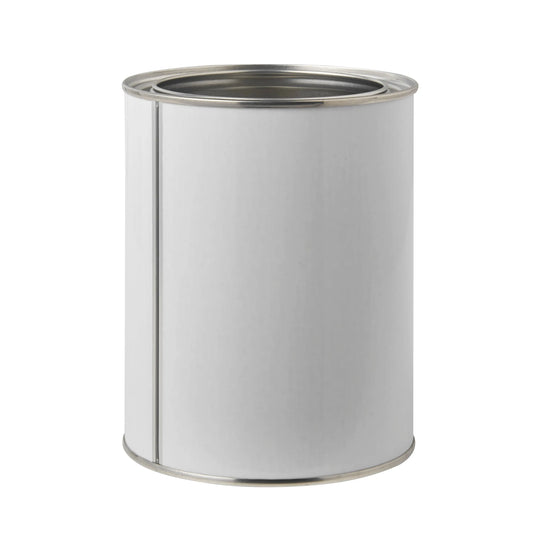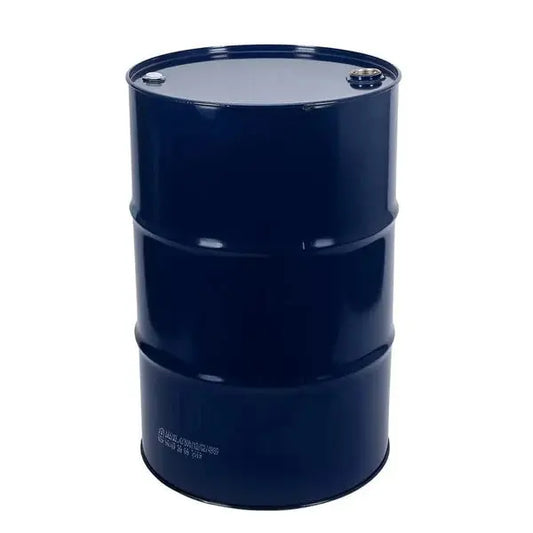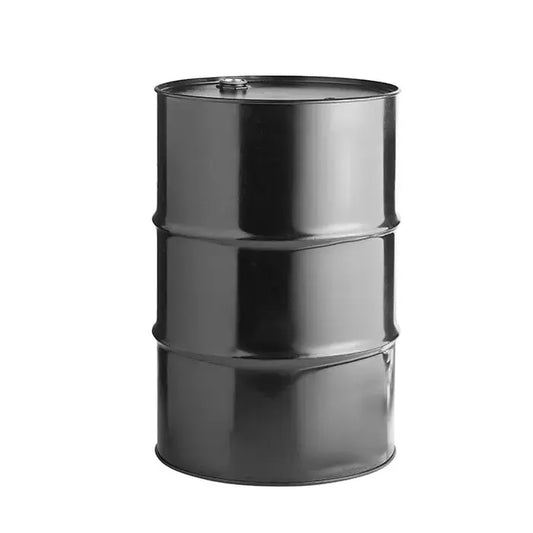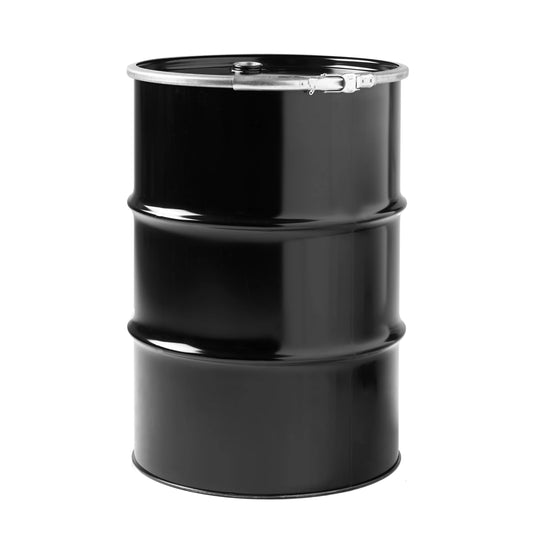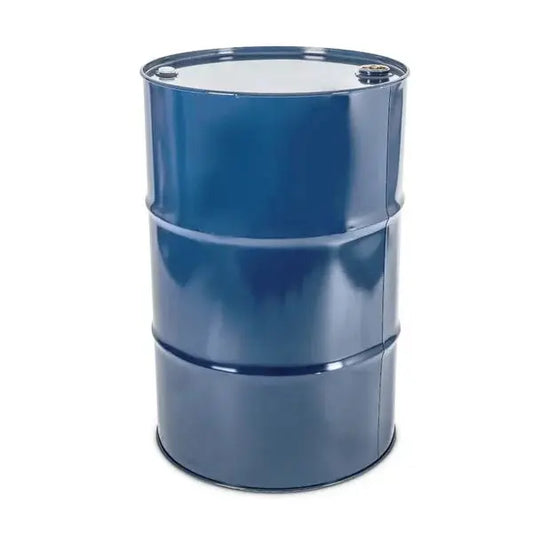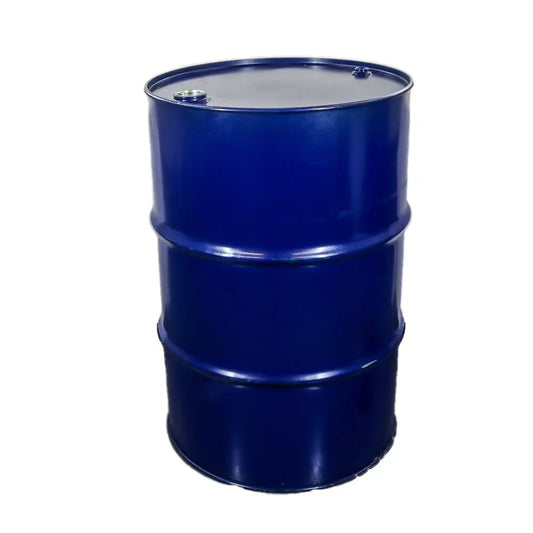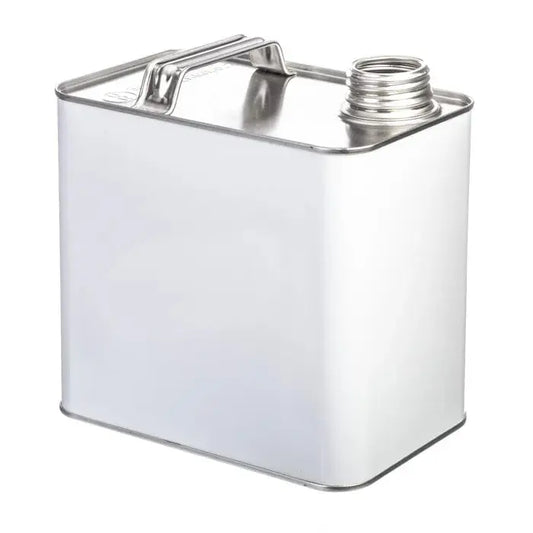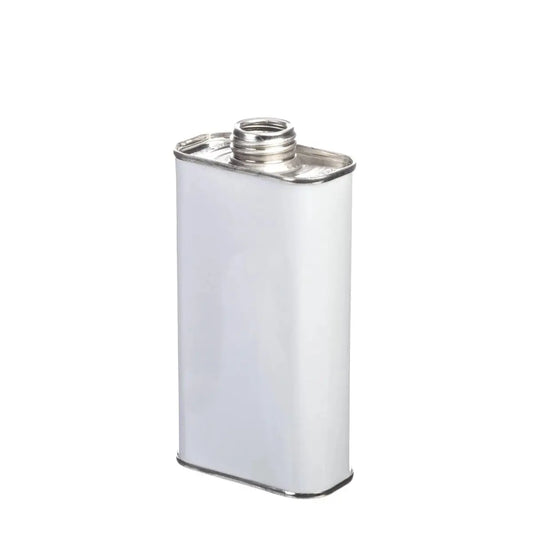Sustainability is the hottest topic in packaging at the moment. Higher public awareness of the problems of plastic waste and environmental taxes such as the Plastic Packaging Tax (PPT) have meant businesses, retailers and consumers are thinking about their packaging differently.
But what makes packaging sustainable? Re-use and re-cyclability are central to minimising the environmental impact of packaging. Metal packaging scores an A+ for both. It's durable so it can be used multiple times, and unlike paper and plastic, it can be recycled forever with no loss in quality.
Metals are permanent materials, so the physical properties of any metal stay the same whatever you throw at them. Metal can be crushed, moulded, spun, machined, shredded, melted, made into a tin can, an aeroplane and back to a can again, as many times as you like.
Metal packaging comes in a wide array of shapes and sizes, read on to find out more, and discover why metal is such a great fit for packaging sustainability.
Types Of Metal Packaging
There are two key requirements for any packaging material. It needs to be fit for purpose and economically priced. It's possible to make a food can out of gold, but it would be prohibitively expensive and gold is one of the softer metals anyway.
When it comes to metal packaging, steel and aluminium dominate the market. Both metals are in plentiful supply, which means they're relatively affordable. Steel and aluminium also have the right physical properties to be made into packaging, they are malleable, non-toxic and durable.
Metal packaging has been around for a long time, so many types of metal containers have become standardised. Aluminium drink cans, tinplate paint tins and steel drums are produced using similar manufacturing methods worldwide. It also means that the packaging technology is tried and tested, making metal a great choice for storing and shipping everything from Coca-Cola to crude oil.
Invopak has been in the packaging industry for over fifty years, and we supply metal packaging to suit every requirement:
- Aluminium Packaging: Aluminium bottles for flavours and fragrances from 19ml to 12.5L and every size in between.
- Steel Packaging: Steel drums and barrels, both are ideal for bulk shipping.
- Tinplate Packaging: Metal pails and paint tins [remove link] in lacquered and unlacquered finishes, as well as rectangular tins and drums.
Aluminium
The physical properties of aluminium make it ideal for packaging. It’s non-magnetic, non-sparking, malleable, lightweight and corrosion-resistant, so it won’t rust in water, making it suitable for holding liquids.
Aluminium is sustainable. Like all metals, it’s a permanent material, with no loss in quality however often it’s recycled. Aluminium is also the most valuable material that we, “throw away”, which means there’s always been a strong incentive to recycle it.
One of the reasons that recycled aluminium is so valuable is that it’s expensive to mine. It’s extracted from bauxite ore using an electrolysis process requiring a lot of energy. Making cans using recycled metal requires 95% less energy than primary aluminium.
There’s a specific recycling process for aluminium because it’s non-magnetic. It’s separated from other waste using an Eddy Current Separator. This uses an electrical current to “throw” the aluminium into a different container. This is then shredded, heated to burn off any residual paint finishes, melted down and cast into ingots.
Aluminium is one of the fastest and easiest materials to recycle. Recycled aluminium drink cans can be used, recycled and back on the supermarket shelf in just 60 days. Unlike many plastics, it doesn’t travel large distances for recycling, with 90% of the aluminium packaging consumed in the UK recycled within Europe.
Drink cans are the most common form of aluminium packaging, with 180 billion produced globally each year. And it’s not just fizzy drinks: beer, cocktails, wine and iced coffee are now often packaged in aluminium.
Aluminium is a non-reactive and non-toxic material so it’s also used to package high-value goods. Aluminium bottles were first developed for use in the fragrance and perfume industry over 100 years ago and are still the best choice for preserving the taste and aroma of essences, flavourings and fragrances.
Invopak is the sole UK distributor for Tournaire, the best Aluminium bottles you can buy. They are the best choice for protecting valuable liquids.

Aluminium bottles offer the ultimate protection for perfume, essences and fragrances
Steel
Mild steel is 99% iron, one of the most plentiful and commonly mined metals (94% of the metal mined globally is iron). It’s the cheapest metal because there’s lots of it and it’s relatively easy to extract and refine.
This makes steel the best material for large containers, like steel drums. Steel is also one of the world’s most recycled metals. Currently, about 85-90% of steel products are made from recycled steel.
Steel is a practical packaging material because it is strong and readily available, making it cost-effective for storing large quantities of petroleum, oils and liquids.
Steel drums are used for shipping goods in bulk. They're manufactured from cold-rolled steel that’s formed into tubes and then seam-welded. The bottom is a separate component, which is also welded on. They’re available in open-head and tight-head versions.
Open-head drums are sealed with a ring latch closure. They’re suitable for containing everything from paints and powders to oils and liquids. Tight-head drums have bung closures designed specifically for liquid and oil storage.
Steel kegs can have lacquered or plain interiors. Solvents can be safely stored in a standard unlacquered barrel because they won’t react with the steel. Water-based goods should be stored in a lacquered container to prevent corrosion.
The durability of steel means that metal barrels can be cleaned and reused. Reconditioned steel barrels are an economical and sustainable option.
Invopak stock UN approved steel drums in lacquered and unlacquered options. We also often have reconditioned drums, take a look online to view our current availability, or contact the team if you have any other questions.

Tin
Tinplate packaging is made of a core of steel coated with a thin layer of tin to prevent rusting. It has an excellent strength-to-weight ratio, is cost-effective to produce and is easily recyclable after use. It can also be pressed, rolled, printed and welded into any style, shape or size of packaging a manufacturer can dream of.
Tinplate is one of the oldest packaging materials and we have Napoleon Bonaparte to thank for it. He needed to feed his army efficiently, so he offered 12,000 Francs to anyone who could find a way to preserve foodstuffs. The tinplate food can was the result.
Tinplate remains one of the most commonly used types of metal packaging today. It's used to manufacture paint tins, pails, drums and oil cans. It's a practical and cost-effective choice for storing paints, resins, oils, coatings and powders.
It's also suitable for photographic quality colour printing. The off-set printing process allows durable, high-quality graphics to be printed directly onto the tinplate sheets before tins are made. This is ideal for high-volume users, helping products to stand out on the shelf, before flying off them. If you'd like advice on the process, our minimum order quantities or even the designs, we can help, get in touch with the team.
Tinplate is 100% recyclable and recycling tin makes economic sense too. Recycling one tonne of tin saves 99% of the energy required for the primary production of tin. All tinplate containers can be recycled, even if they've been used for paint because any residual coatings are burnt off through incineration as part of the recycling process.
According to the International Tin Association, the average amount of recycled content for any tin product is 33.1%. So 1/3 of the metal in that new paint tin has already been used before.
Invopak has been a metal packaging wholesaler for decades and in 2024 we entered the manufacturing arena. The Invopak tinplate factory has been built in Manchester, and we're now producing our own lines of the most in-demand tinplate products including lever lid tins. View our full range of tinplate products.

Advantages Of Metal Packaging
Whether you turn to tin, steel or aluminium to meet your packaging needs there are a few great reasons to choose metal:
It Is Durable And Practical
Metal is the strongest packaging material. It won't break like glass, it has a high puncture resistance, is impermeable and suitable for heavy loads.
Metal Is 100% Recyclable - Forever
Metals are permanent materials. They can be used and re-used forever with no loss in quality. Sustainability matters and metal is one of the most sustainable packaging solutions out there.
It Is Made From A Single Material
Metal packaging is made of one material, so it's easy to recycle. Think of a drink can or a paint tin, they're made from aluminium or steel, nothing else. There's no need to separate different layers or material types. Collect, melt down, re-use - it's that simple with metal.
It Is Tried, Tested And Trusted
Businesses and customers trust metal packaging. Metal paint tins and food cans have been used for decades. Metal packaging has a proven track record for safely storing and shipping a wide range of products.
It Has Quality And Prestige
Customers equate metal with quality. Businesses can charge more for goods stored in metal packaging. Premium paint brands use tinplate tins to lend prestige, and the beverage industry has also reaped the benefits of metal, with companies like Beavertown using full-colour printed aluminium cans to stand out in a crowded marketplace.

Be A Responsible Business Owner - Choose Sustainable Metal Packaging
Consumers are becoming increasingly aware of the environmental impact of their packaging choices. The huge environmental cost of single-use plastic bottles is hard to ignore once you see their sheer quantity in rubbish heaps and beaches.
Metal packaging is ideal for reuse, which is another reason large retailers are investing in metal packaging. M&S now offer re-fillable aluminium bottles for cleaning and laundry products. Lucinda Langton, Head of Sustainability at M&S Food said:
"At M&S, we want to support our customers [to] live more sustainably. We know they care deeply about us reducing plastic packaging and are continuing to look for ways they can make small changes in their everyday lives. Our Refilled scheme has proven hugely popular – showing there is high demand for refillable and great value options".
Many suppliers are moving away from plastic to metal for economic reasons too. Environmental taxes such as Plastic Packaging Tax (PPT) and Extended Producer Responsibility (EPR) are designed to reduce our use of plastic by charging higher tariffs on plastic products. These taxes are set to increase each year as the government seeks to reduce our reliance on plastic.
Choosing metal packaging sends a powerful signal to your customers that you're serious about sustainability, so why wouldn't you switch to metal?
Sustainability For Longevity
Humans have been melting and re-melting metal since 700 BC. When the ancient Colossus of Rhodes statue fell into the sea after an earthquake, it was recovered and recycled 900 years later, and there's even mention of metal recycling on clay tablets from Mesopotamia and the Egyptian Pyramids.
When it comes to metals recyclability nothing has changed. Metal is a permanent material, so its structure stays the same however many times it's used. It's as recyclable today as it was 1000 years ago. This makes metal the ultimate, sustainable long-term packaging solution.
Plastic can be recycled but it loses some of its physical properties in the process. This means that unlike metal, plastics are on a downcycling spiral that eventually leads to incineration or landfill. Paper and cardboard packaging are often championed as a sustainable packaging solution, but they also lose quality in the recycling process and require a constant supply of wood, to replenish the primary stock.
Metal can't be beaten when it comes to long-term sustainability.

Invopak - Your Sustainable Metal Packaging Supplier
We believe in the future of metal packaging, which is why we've built our own factory. We're making some of the most in-demand metal packaging, such as lever lid tins and UN-approved rectangle tins, right here in Manchester.
Invopak is now your metal manufacturer and supplier rolled into one, which is a first for the packaging industry. It means we can provide our customers with excellent service, knowledge and expertise, and reliable product availability for the most essential tinplate products.
Do you have questions or need more information about sustainable metal packaging options? Contact us sales@invopak.co.uk with your enquiries and we will be more than happy to help.

